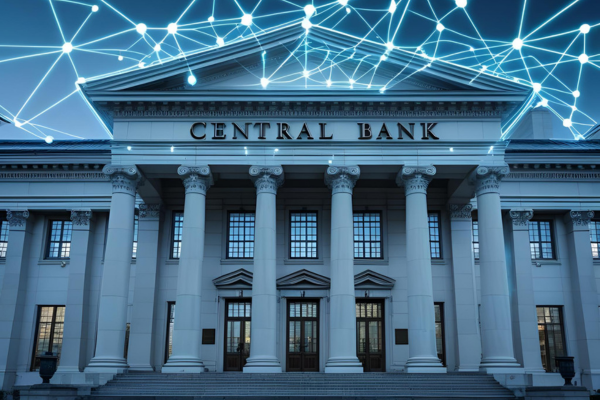Quantum Computing and the Future of Crypto Security
Quantum Computing If you’ve been in crypto for more than five minutes, you’ve probably seen the new fear headline making

Crypto Security – August 18, 2025
Cute – but let’s cut straight to the truth. While everybody keeps debating what is CBDC and whether it might appear someday in the future…
CBDCs are already live in multiple countries right now. You just didn’t notice, because they’re being rolled out under different names and wrapped in “innovation” marketing.
But first, in case the title is literally what brought you here, let’s quickly answer the obvious:
It stands for Central Bank Digital Currency.
It’s basically a government-controlled digital version of your country’s currency. Not crypto. Not decentralized.
Just digital money issued and tracked directly by your central bank (with no private bank in the middle).
That “tracking” part is exactly why this isn’t just another tech update.
They’re not called “CBDCs” in the wild.
Nigeria quietly launched the e-Naira back in 2021 and it’s already used for everyday payments.
China calls its version the Digital Yuan (e-CNY) and it already has over 200 million active wallets in cities like Shanghai and Beijing – even being used during the Beijing Olympics.
The Bahamas already uses its digital Sand Dollar as an official national currency.
India is testing its Digital Rupee in multiple cities right now.
Brazil is testing its Drex CBDC and plans full rollout in 2025.
And that’s just the short version. According to the Atlantic Council CBDC Tracker, over 130 countries are currently researching, testing, or actively deploying CBDCs
Instant payments (directly to citizens)
Cheaper than printing paper currency
No middlemen (commercial banks)
Full visibility into every transaction
Programmable money (yes, literally)
If you’re still asking What Is CBDC at this point, it’s basically:
Digital money that the government can send, monitor, freeze, or even “expire” – whenever it wants.
That might sound efficient… until you flip the coin.
Let’s keep it simple:
Total Surveillance – They can see every transaction you make
Spending Controls – “Sorry, you’ve hit your carbon spending limit for the month”
Expiring Money – China has already tested CBDC that must be spent in a certain timeframe
Instant Account Freezes – No court, no warning, just locked
These aren’t conspiracy theories. They’re official CBDC features listed in government research papers and pilot programs.
Nigeria’s e-Naira has built-in monitoring. China’s digital yuan has already tested programmable expiration.
And once this becomes “the new normal,” there’s no going back.
Cool – but your government is watching closely.
The U.S. already ran its own CBDC test (Project Hamilton).
Europe is actively trialing a Digital Euro.
Australia, Canada, Japan, and the U.K. have live pilots in progress.
So yes, you should absolutely be asking What Is CBDC now… because by the time your local news runs that headline, the entire system might already be built.
Honestly? Both.
CBDCs could make payments faster and more efficient.
But they also open the door to the greatest financial surveillance tool in history.
And that’s exactly why your digital privacy and security matters more now than ever.
If money itself is going digital and programmable, then hoping you’ll stay safe isn’t a strategy.
You need to know how to protect your privacy, control your assets, and stay secure in a fully digital environment.
That’s exactly why we created the Crypto Security & Privacy PlayBooks – beginner-friendly, step-by-step guides that show you how to take full control of your digital footprint, stay private, and protect yourself, even if CBDCs become mandatory.
CBDCs aren’t some distant future.
They’re here.
They’re expanding.
And if you don’t learn What Is CBDC and what it means for you, you might end up losing more than just convenience.
The only real question is:
Are you going to protect your privacy now or wait to be blindsided?
Quantum Computing If you’ve been in crypto for more than five minutes, you’ve probably seen the new fear headline making

New to crypto? Start here. Chill the F*ck Out If your blood pressure spikes every time Bitcoin sneezes, congratulations, you’re